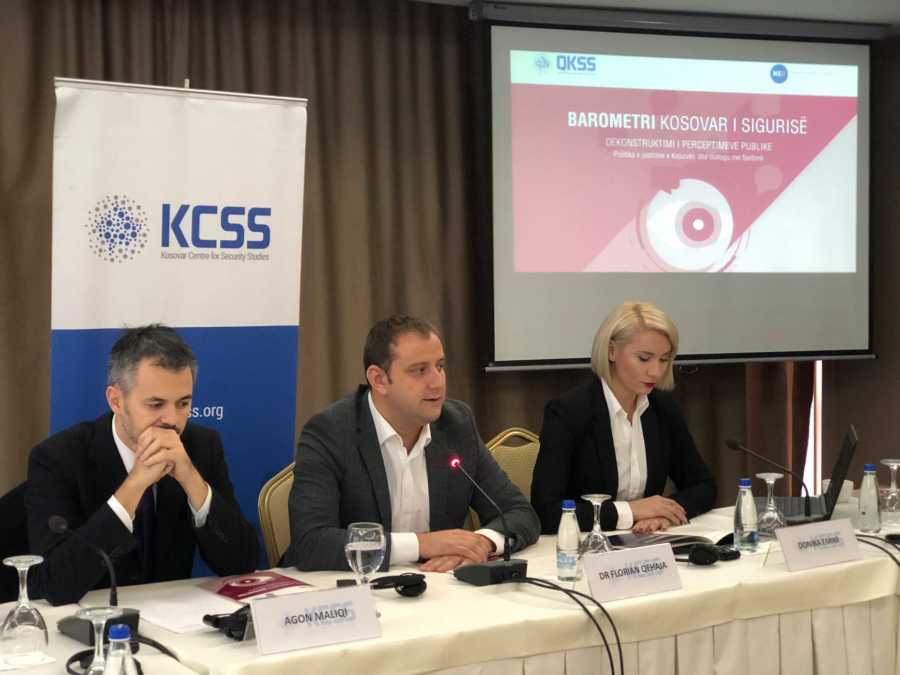17/12/2018

Kosovar Centre for Security Studies (KCSS) on 17 December 2018 has published the Special Edition of the Kosovo Security Barometer on Foreign Policy and Dialogue with Serbia. The results of this edition were presented by KCSS Researcher, Donika Emini and were discussed by
This edition addresses the following topics:
1. Public perceptions of relevant regional and international actors;
2. Public perceptions of external influences in Kosovo and Euro-Atlantic alliances;
3. Public perceptions of the facilitated EU dialogue between Kosovo and Serbia
The results of this edition once again confirm Kosovo's pro-Western orientation, listing the United States and Germany as a strategic partner to Kosovo. Albania and Croatia remain the countries that are considered as allies in foreign policy and the main drivers of Kosovo's membership agenda in international organizations.
On the other hand, Serbia is still considered to be a very hostile country toward Kosovo and the greatest threat to Kosovo's security. Serbia's influence has been seen as very dangerous, referring to the blockade of Kosovo internationally as well as its impact on internal politics through the Serbian List.
Data on perceptions toward the dialogue show that there is a great lack of trust toward this process. The lack of transparency is the key factor behind the perception that “the winner is on the other side”. This collective paranoia is created by ambiguity in the language of the agreements.
The Association of Majority Municipalities is still seen as dangerous for Kosovo's internal functioning by 80% of respondents. Similarly, 80% are against to the exchange of territories as the ultimate solution to the dispute with Serbia. Asked who should lead the dialogue, 15% were declared for President Thaci and 11.5% for Albim Kurti. Little confidence has been shown to the Government and the Assembly in this process.